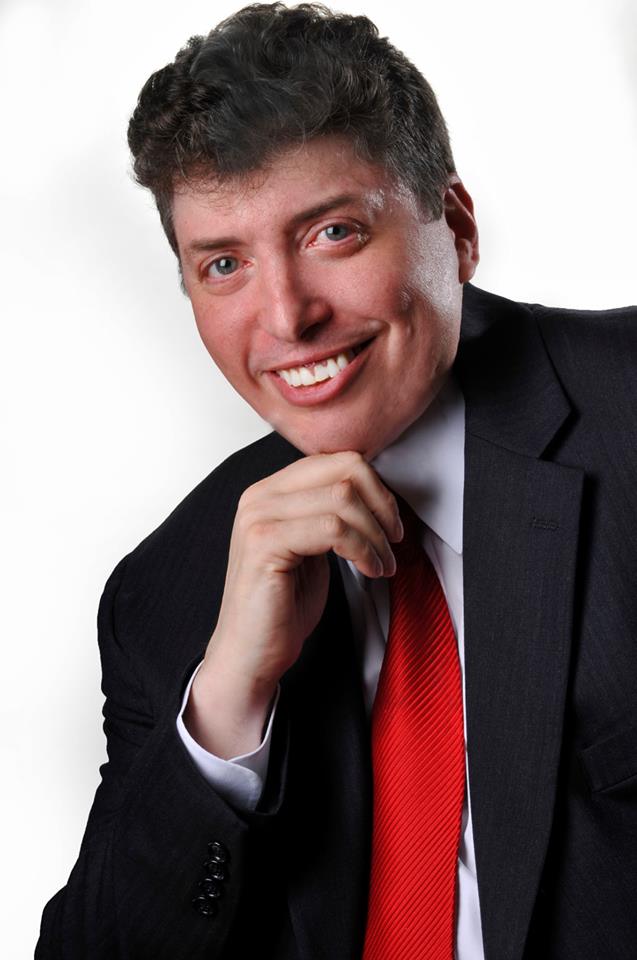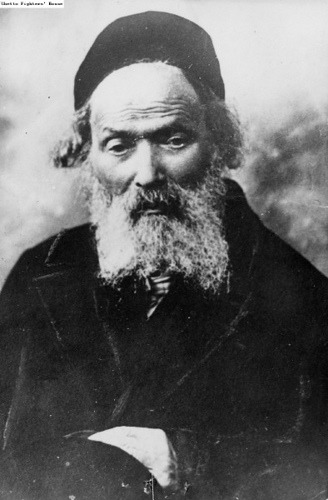Published: 08.19.07, 16:16 / Israel Jewish Scene
Reform Heretics

We are currently witnessing the beginning of the end of the failed experiment called Reform Judaism
The Reform Movement is in the midst of an identity crisis. According to a Jewish Week article last week, this summer guest musicians came to Kutz Camp, the Reform movement’s teen leadership camp and led a jazzed-up version of the evening prayers. One by one, 40 campers in their mid-teens got up and walked out. They wanted a more traditional service, they later explained.
It seems that this is a culmination of much change that has taken p{l}ace in Kutz Camp. Everything about the camp reflects the Reform Movement’s irreverence for tradition: the food is “kosher style” rather than kosher proper, rituals are sidelined and prayers are jazzed up.
However, according to the Jewish Week, camp director Reform Rabbi Eve Rudin said that some Reform youth attending the camp are interested in making it really kosher. “We first started seeing kids lay tefillin two or three years ago,” she said. “Certainly we saw it last summer. It’s a handful of kids. Tzitzit are more widespread; quite a few kids are wearing them.”

So the elite Reform youth are getting interested in religious ritual, demanding kosher and turning their back on “innovative” types of prayer services. This growth from within the Reform Movement removes the raison d’être of Reform Judaism. Abraham Geiger (1810-1874) and Samuel Holdheim (1806-1860), who founded Reform Judaism, had one major concern in mind: how can Judaism remain relevant in the modern world, where Jews have been emancipated from the ghetto and shtetl? Their response was that Judaism needed to be modernized if it was to survive.
They thus changed around the synagogue: they took away the mechitzah (separation between men’s and women’s seating), moved the bimah to the front and brought in the organ. They felt that this made Judaism less distinct and more modern – in fact, they modeled their synagogues on Protestant churches. In addition they did away with most rituals, and prayer services were held in German rather than the traditional Hebrew. By modernizing Judaism in this way they hoped to make it relevant to the modern, emancipated Jew and thus salvage it from certain demise.

Church-look a like Mizpah Congregation "Ochs Temple" Chattanooga, TN
Judaism's peaceful death
So in fact Reform Judaism was not meant to be an ideology; it was a response to a perceived problem that modern societies posed to traditional Judaism. Unfortunately that response has failed on a number of levels. Statistics show that, instead of saving Judaism, Reform just allows it a more peaceful death — this has been proven in a study by Antony Gordon and Richard Horowitz, which shows that where there are 100 Reform Jews today, there will be only 10 within four generations.

from the Oorah.org website
The premise that traditional Judaism could not survive modern, open-minded ideas and philosophy turns out to be incorrect too. The biggest proof of this comes from within the Reform community itself. The fact that members of the Reform Movement’s teen leadership group, brought up in the midst of liberal American culture, are returning to tradition is testament to the fact that traditional, ritualized Judaism is compatible with modernity.
Perhaps most surprising, however, is that at the end of the Jewish Week article, Eric Yoffie, president of the Union for Reform Judaism, was quoted as saying, “If you take it all (rituals) upon yourself as an obligation rather than as a choice, you’ve reached the point at which you’re no longer a Reform Jew.” It is strange that the higher echelons of the Reform Movement are now feeling the need to define people out of its ranks. For the first time we have people defined by the leadership of the movement as Reform heretics, who can no longer be considered Reform Jews.

Eric Yoffie
Beginning of the end
This was not how the founders of Reform envisioned it. In order to preserve Judaism, they wanted to be as inclusive as possible. We have now come full circle and Reform Judaism itself is losing some of its finest members to traditional Judaism. Now they feel the need to define their boundaries. To quote Kutz Camp director Eve Rudin, “This is about the Reform Movement coming to terms with the fact that there are boundaries, and what those boundaries may be.”
Incredibly, instead of being happy that traditional Judaism can in fact thrive in a modern, liberal culture, the Reform leadership is working to stop its members from joining traditional Judaism by threatening to exclude them from the movement they were born into. Clearly, Reform Judaism has lost its very reason for existing.
Undoubtedly, what we are witnessing is the beginning of the end of a failed experiment called Reform Judaism. The leaders of the movement have realized this and are thus taking desperate measures to save what is, in fact, a sinking ship.
Rabbi Levi Brackman is executive director of Judaism in the Foothills and the author of numerous articles on a whole range of topics and issues, many of which can be found on his website.
...Of the three pillars of Judaism - G-d, Torah, and peoplehood - Reform radically altered the last two. Most significantly, it dropped the belief that the Jews are a people. Jewish Literacy. The Most Important Things to Know About the Jewish Religion, Its People, and Its History, Rabbi Joseph Telushkin, Morrow Press. pp 230,231.
I have one question for Eric Yoffie. If someone chooses to understand that their religious inheritance includes obligations, can you no longer be a Reform Jew? How does Reformism not have obligations and still keep G-d? Is HaShem a choice l'havdil to keep or reject like a Reform Cantorial Soloist? Is it your choice Eric what choices others can make? Have you ever read Animal Farm?
Rabbi Brackman through example looks at a common philosophic mis-conception. The path of least resistance dictates that humans will seek the easiest way, the "least resisted" in all affairs. It is simply a matter of ease, conservation of time, energy and resources. Spiritually however, it is a manifestation of the Yetzer Hara. The Yetzer Hara is the force inside a Jew which empowers the Sitra Achra, the source of negative spiritual energy. In other words, before professional Psychology recognized "human" weaknesses, yiddishkeit had previously identified the spiritual equivalents which bring life to the physical impulse and drive. Reformism speaks to these gashmius impulses telling a Jew, no obligations, no laws, spirituality is interpreted as what has meaning for you (regardless what others think).
Read Yoffie's comment again. If you do not "choose" to do mitzvas you cannot be a real Reformist Jew. Choice and Yetzer Hara can be viewed as the same force. Choosing to do mitzvas is not a real choice at all. If one chooses to keep kosher or not, is a real choice being made? Choosing to fulfill the Jewish adult's responsibility to view his self as a small piece in a larger Jewish world or to separate from B'nai Yisroel and follow his own desires is the choice.
Perhaps, this is the ikar of Devarim, 11:26-28, Parashas Re'eh
11:26 You can therefore see that I am placing before you both a blessing and a curse.
Re'eh anochi noten lifneychem hayom berachah uklalah. 11:27 The blessing [will come] if you obey the commandments of God your Lord, which I am prescribing to you today.
Et-haberachah asher tishme'u el-mitsvot Adonay Eloheychem asher anochi metsaveh etchem hayom.
11:28 The curse [will come] if you do not obey the commandments of God your Lord, and you go astray from the path that I am prescribing for you today, following other gods to have a novel spiritual experience.
Vehakelalah im-lo tishme'u el-mitsvot Adonay Eloheychem vesartem min-haderech asher anochi metsaveh etchem hayom lalechet acharey elohim acherim asher lo-yedatem.
and Devarim 30:15-17 Parashas Nitzavim.
30:15 See! Today I have set before you [a free choice] between life and good [on one side], and death and evil [on the other].
Re'eh natati lefaneycha hayom et-hachayim ve'et-hatov ve'et-hamavet ve'et-hara
30:16 I have commanded you today to love God your Lord, to walk in His paths, and to keep His commandments, decrees and laws. You will then survive and flourish, and God your Lord will bless you in the land that you are about to occupy.
Asher anochi metsavecha hayom le'ahavah et-Adonay Eloheycha lalechet bidrachav velishmor mitsvotav vechukotav umishpatav vechayita veravita uverachecha Adonay Eloheycha ba'arets asher-atah va-shamah lerishtah. 30:17 But if your heart turns aside and you do not listen, you will be led astray to bow down to foreign gods and worship them.
Ve'im-yifneh levavecha velo tishma venidachta vehishtachavita le'elohim acherim va'avadetam.
The choice is to stake one's lot with the Jewish people or push aside HaShem, the Torah and the Jewish people. Reformist campers at Kutz may be on the right track. Yoffie is still standing facing west in the east bound lane.
























































0 comments:
Post a Comment